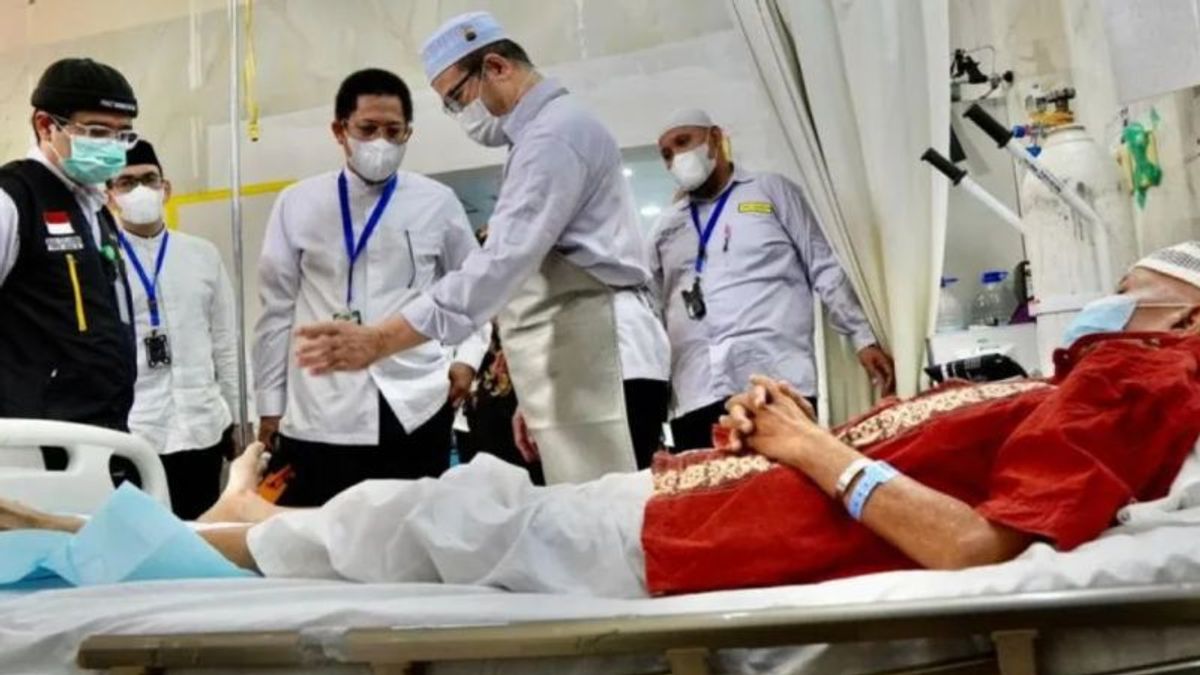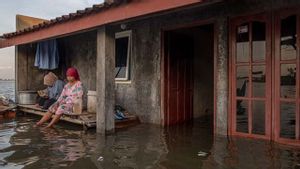JAKARTA - The Ministry of Health has implemented a health observation procedure for pilgrims arriving in Indonesia to prevent the transmission of COVID-19.
It is reported that as many as 4,765 first batch of hajj pilgrims will start leaving for the country on July 15-16, 2022 via King Abdulaziz Airport, Jeddah, Saudi Arabia.
The Head of the Hajj Health Center at the Indonesian Ministry of Health, Budi Sylvana, said that during the COVID-19 preparedness period, the hajj pilgrims who arrived would carry out efforts to monitor the health quarantine and the applicable health protocols.
"For pilgrims arriving in the country, a health screening will be carried out upon arrival at the international airport for debarkation," he said in a press release from the Public Relations Bureau of the Indonesian Ministry of Health in Jakarta, Antara, Wednesday, July 13.
The screening in question is checking the temperature through a thermal scanner and thermal gun, signs and symptoms as well as observing the pilgrims at the debarkation.
If the congregation is found with symptoms of fever or shows the potential for infectious diseases, said Budi, further examination and antigen testing will be carried out. If the results of the reagent show reactive, then further examination will be carried out with RT-PCR.
“If the results are positive, they will be referred to a centralized isolation facility for asymptomatic cases or mild symptoms. Meanwhile, those with moderate or severe symptoms will be referred to the COVID-19 Referral Hospital," he said.
Meanwhile, pilgrims who are declared healthy upon arrival and observation at the debarkation hajj dormitory can return to their homes while still undergoing self-quarantine and monitoring their health conditions for the next 21 days.
"Congregants will be handed out Health Alert Cards for Hajj Pilgrims (K3JH), and will be monitored by the local health office," he said.
In addition to health screening, the Ministry of Health has also prepared health posts at the airport for outpatient, emergency and referral services.
In addition, ambulances and medical personnel are also provided in anticipation of infectious diseases. The Ministry of Health has also prepared a health surveillance system for Hajj pilgrims together with the district/city health offices.
Budi asked the pilgrims not to wait to be thirsty, so they still wear personal protective equipment (PPE) every time they carry out activities outside the inn. In addition, pilgrims are asked to continue to comply with health protocols, especially the use of masks.
The English, Chinese, Japanese, Arabic, and French versions are automatically generated by the AI. So there may still be inaccuracies in translating, please always see Indonesian as our main language. (system supported by DigitalSiber.id)













